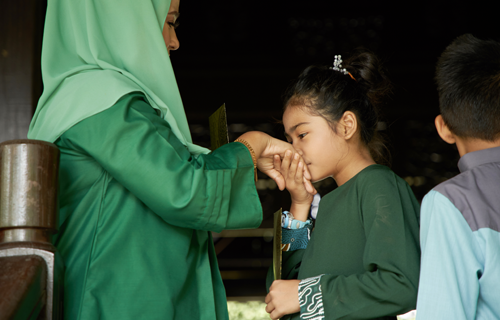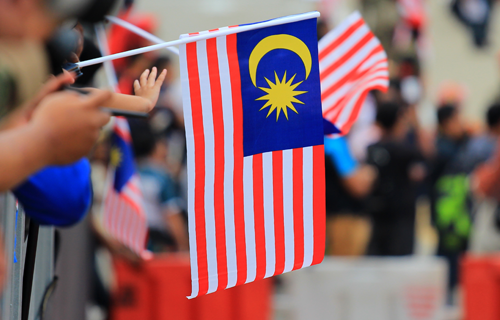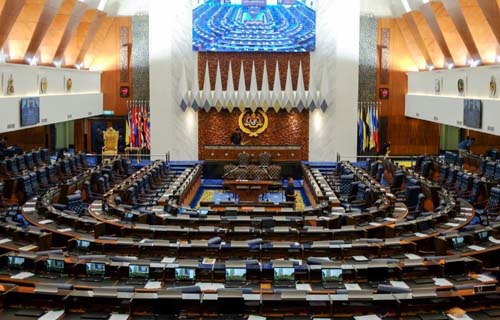Written by YAM Tunku Zain Al-‘Abidin ibni Tuanku Muhriz, Founding President of the Institute for Democracy and Economic Affairs (IDEAS).
Although some major open houses were cancelled as a mark of respect following the passing of Tun Abdullah Ahmad Badawi, Raya open houses continue to take place even after the month of Syawal.
There is only so much lemang, rendang, and satay one can consume in a day, and within a month, this spreading out of celebrations has become necessary from a gastronomical perspective.
But there was also some resistance from a social perspective. One colleague lamented, “It’s enough to go to one or two of these… you keep seeing the same people, and especially when you can’t sit wherever you want, you run out of things to say. But if I don’t attend, then people will merajuk!”
While the issue is a genuine concern for some attendees, I am confident the practice won’t phase out anytime soon because, for so many others, open houses remain an important platform for pitching projects, enhancing job prospects, and networking for opportunities that may come.
For charitable organisations that rely on donations, the platform is crucial for updating sponsors on progress and expanding their community of supporters.
I was very glad, for example, that the company that makes and sells women’s prayer clothes (telekung) by Siti Khadijah and related products sponsored an open house at IDEAS Autism Centre in Nilai, just minutes away from their main factory.
A few days later, Yayasan Sime Darby’s long-standing support for IDEAS Autism Centre was recognised at Salam Autism Day, which also featured the many organisations supported by them over the years. The gathering has already sparked discussions about new collaborations between recipients who had never interacted before.
A short trip to Penang recently was to visit the second campus of IDEAS International, another initiative that emerged over a decade ago out of research work at the Institute for Democracy and Economic Affairs (IDEAS), which highlighted the importance of allowing all children, including refugee children, to receive an excellent education.
The same passion and beliefs will drive the Penang campus as well as the new KL campus located in Cheras. Apart from board meetings, I have occasionally visited the school to join the students in a musical project or to become a guest teacher teaching political theory.
That experience — after a lull of many years when I used to teach students at a university — was truly enlightening because it showed how much refugees understand the power structures that affect their lives and yet feel powerless to do anything about it. For a start, they don’t have a vote in the place where they live, but some still manage to find a voice through engagement and collaboration with others.
More recently I have been teaching students associated with another school where I have just joined the board, and what’s intriguing is the diversity among the group of students.
There is a larger age gap than usual within the class due to the inclusive philosophy of the school, which is insightful as well: lived experiences and observations from social media significantly influence what both younger and older teenagers prioritise in their lives (as well as how they envision their future adult lives).
Nevertheless, it is possible to encourage them to contemplate how they would design hypothetical countries, considering the types of institutions they would establish and the policies they would implement in education, healthcare, housing, and so forth. What I found particularly heartwarming is the assumption of inclusivity throughout all their deliberations.
In contrast to the divisiveness and exclusivity that some politicians wish to assert, addressing only certain constituencies to attain and exercise power, almost every child I’ve ever come across — even if they aren’t naturally interested in politics in the first place — has begun with the viewpoint that there are other people who are not necessarily like themselves, and yet society and the institutions of the country should take them into consideration.
I would like to believe that there is something inherently present in the Malaysian psyche that supports this perspective — that our country is a beautiful place, brimming with potential for all its citizens, and that even non-citizens should have the opportunity to contribute to and participate in its traditions and institutions, guided by laws and policies that are inclusive and mindful of the world’s imperfections.
Still, I would suggest that open houses, as wonderful an expression as they are of our inclusivity and desire for shared celebration, need to be augmented by good and consistent civic education among the minds of our young, lest they be corrupted by the narrower interests that have sometimes prevailed.
This article was featured in The Star
The views expressed in this article are solely those of the authors and do not necessarily represent the views or positions of IDEAS Malaysia. All opinions are the author’s own.



